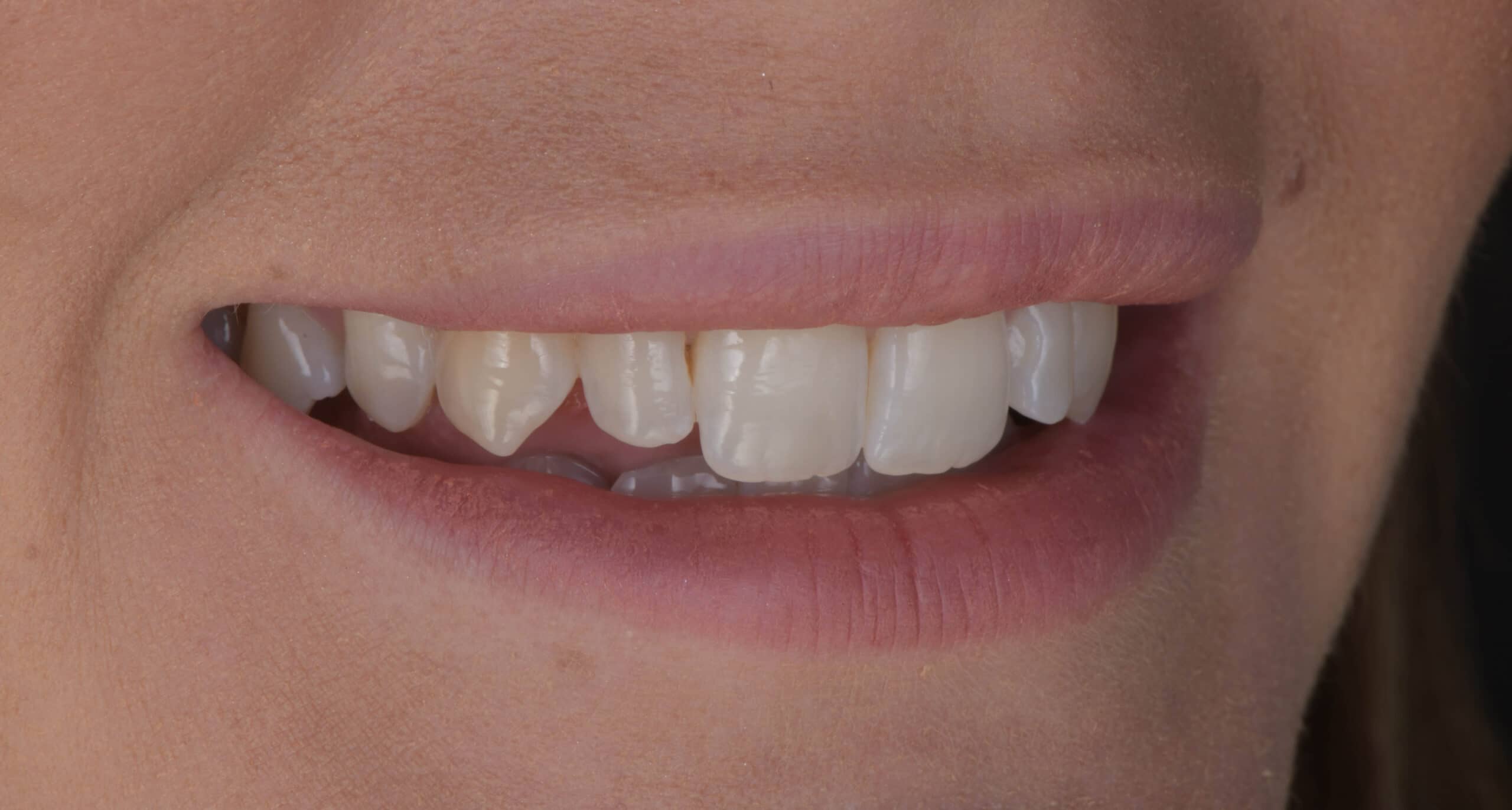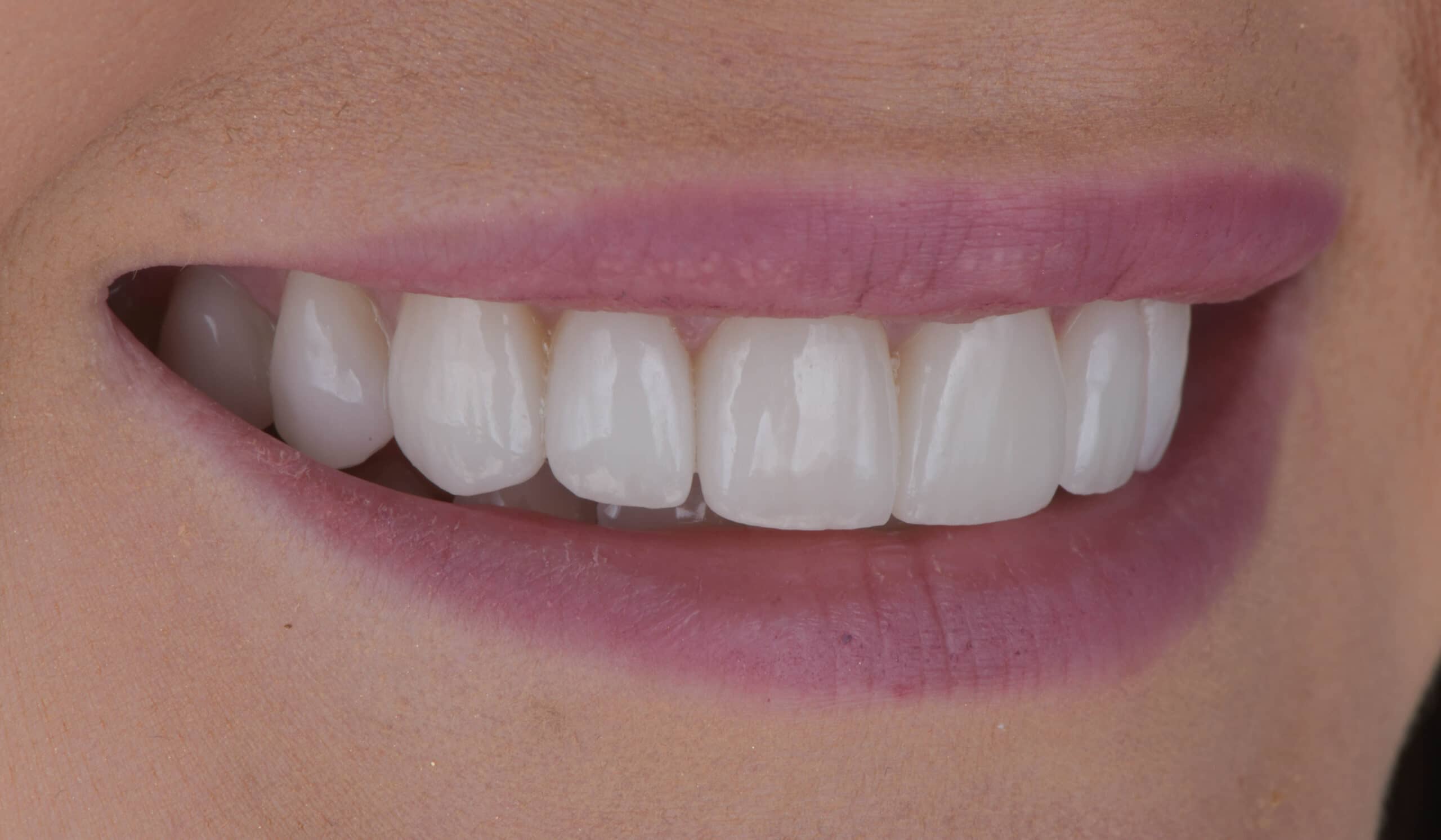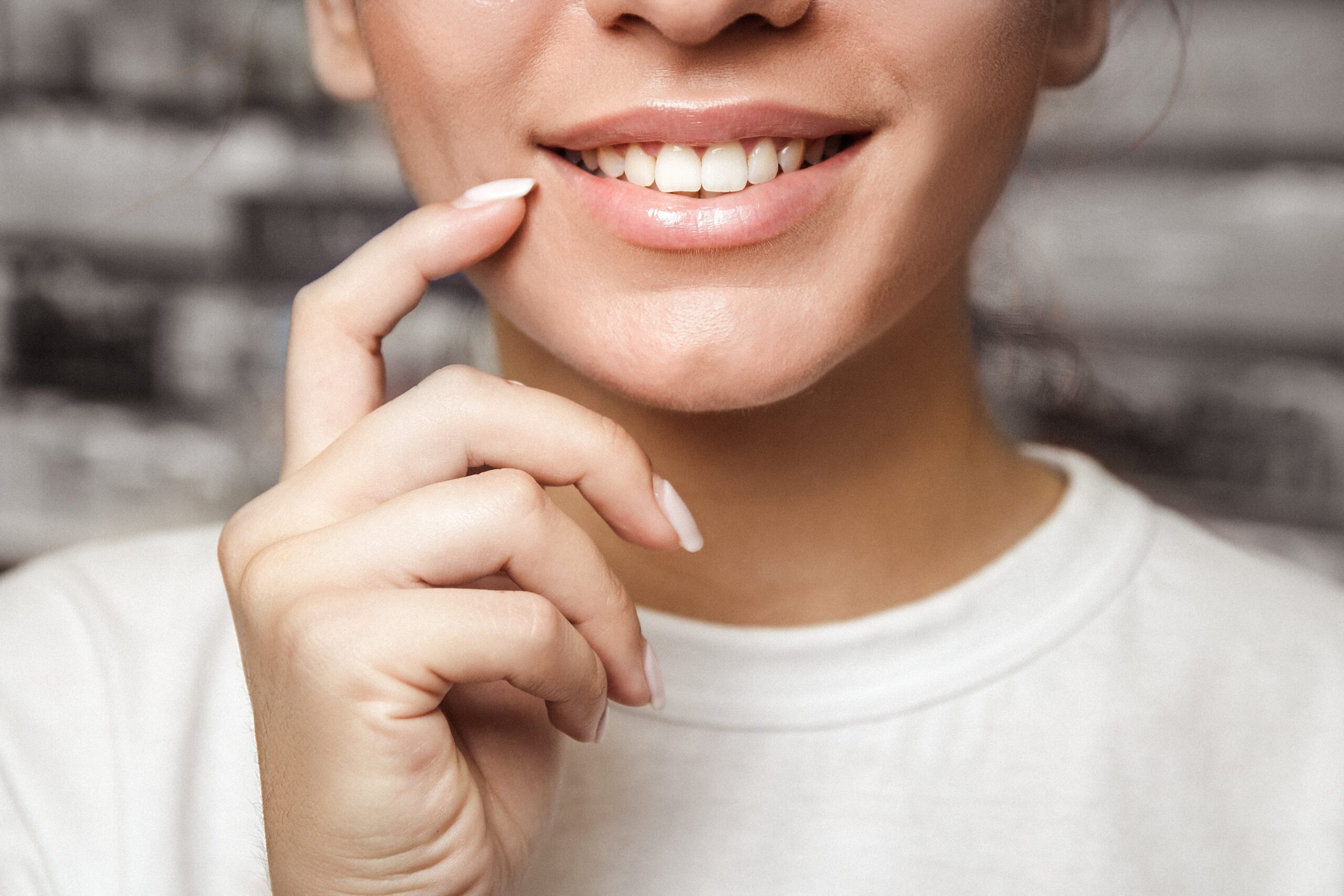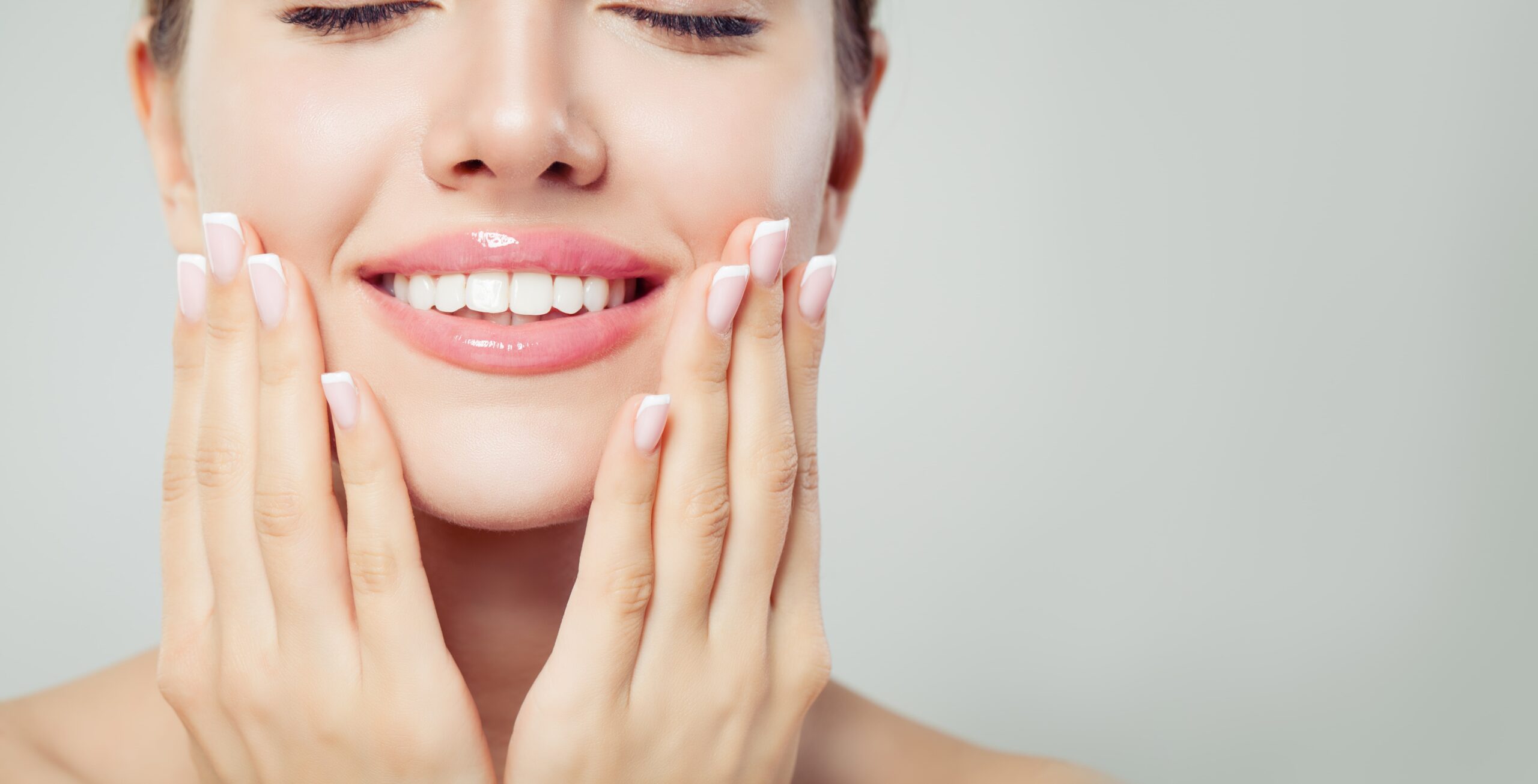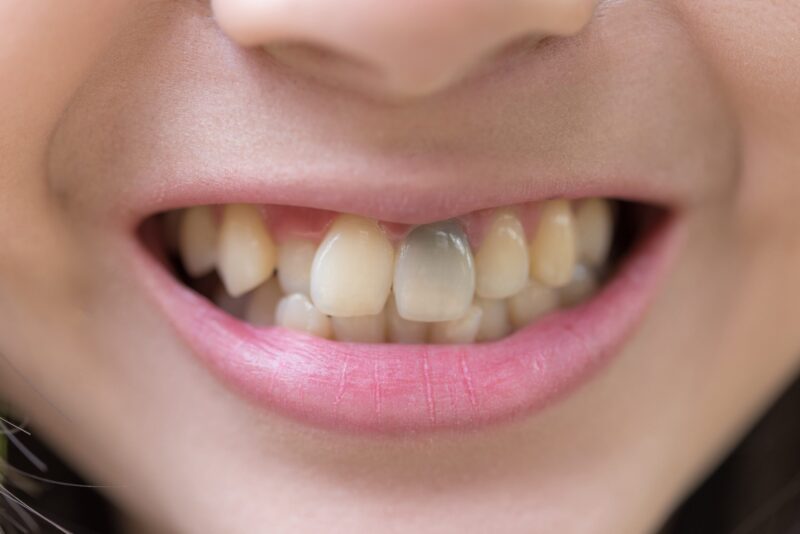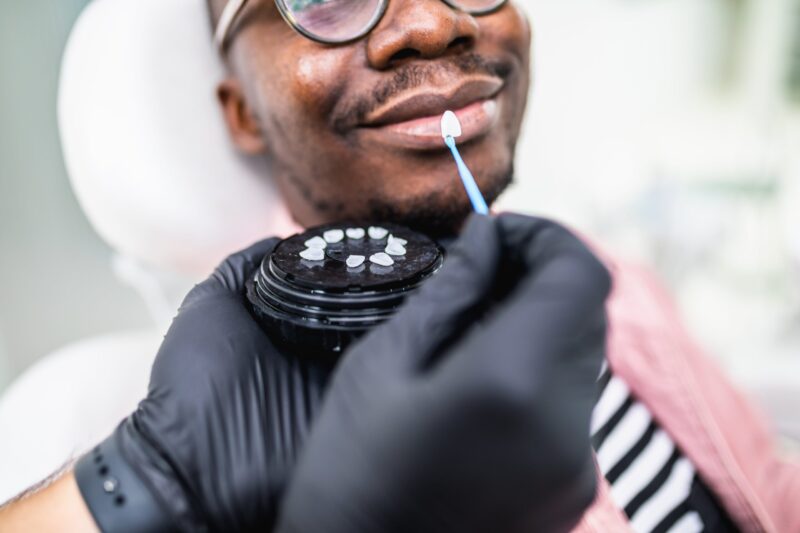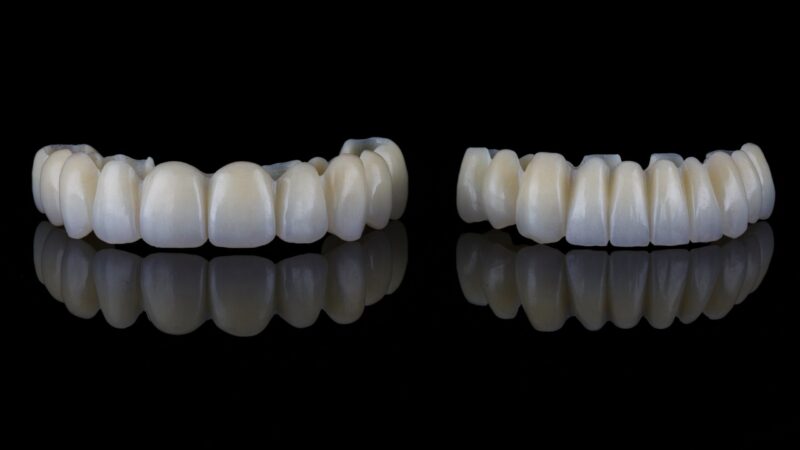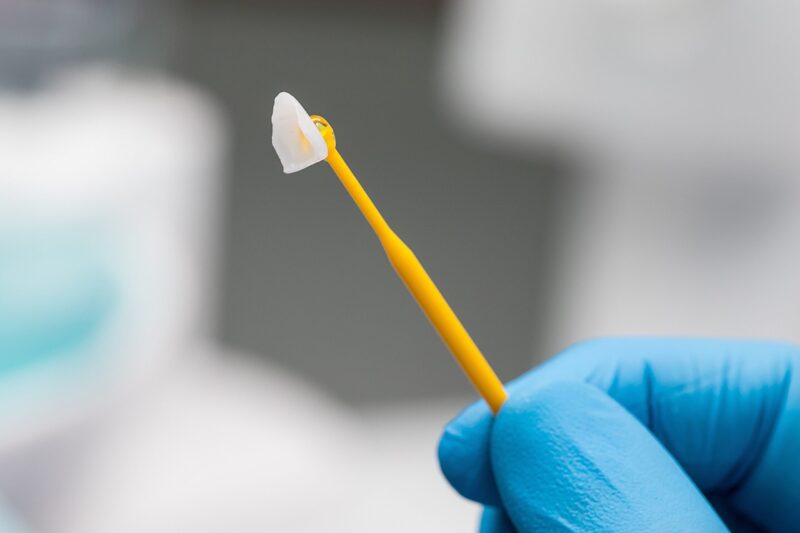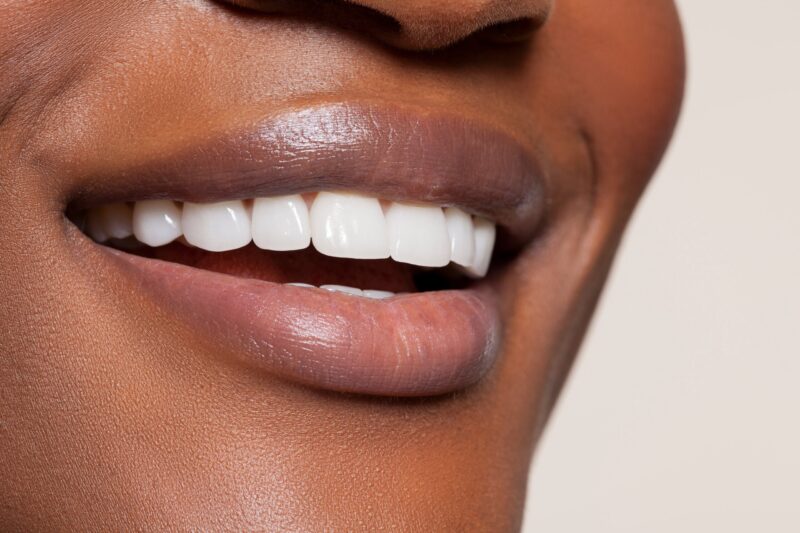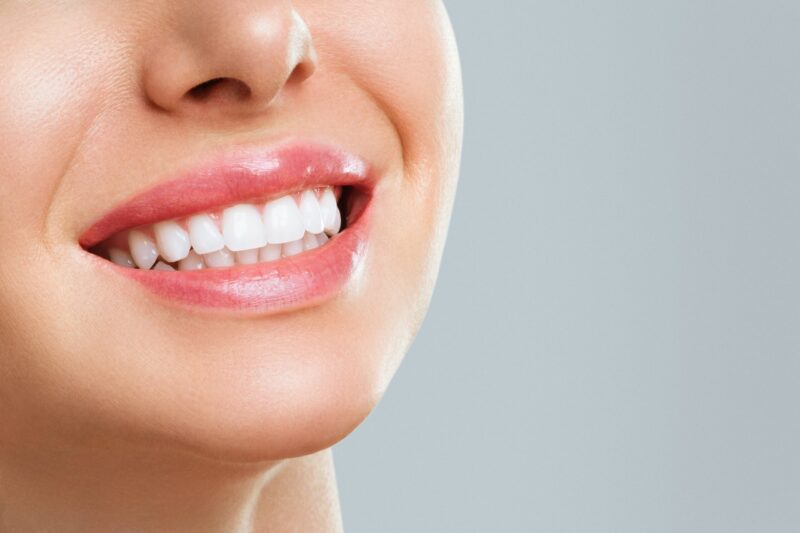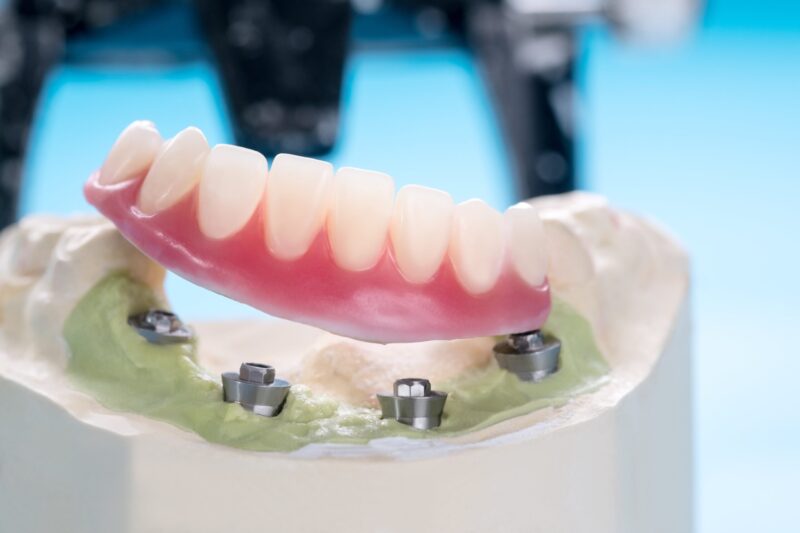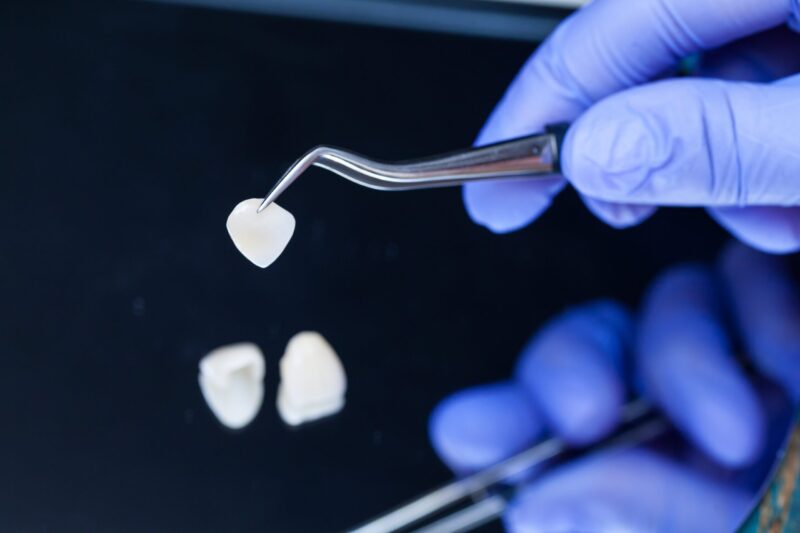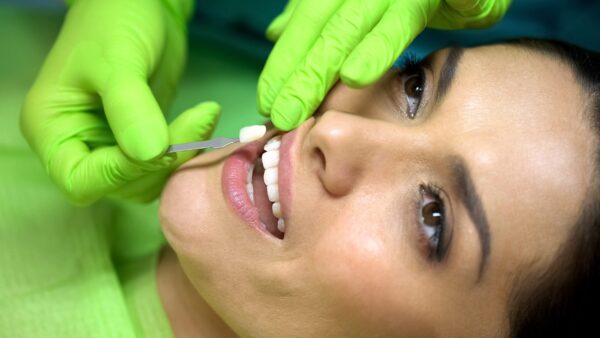Veneers London: Get a celebrity-worthy smile and boost your confidence with the highest standards of dental veneers in London. Our porcelain veneers are proudly made in London and will transform your smile and your life, giving you the confidence you deserve. Our proven and accredited workflow meets the highest dental veneer standards in London, ensuring a lifelong result. Following are a few photos with veneers from our amazingly satisfied clients:
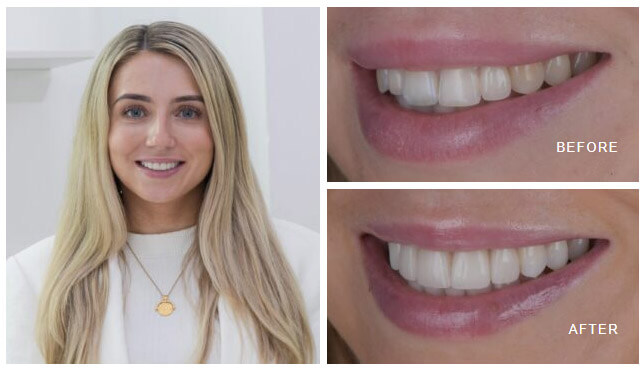
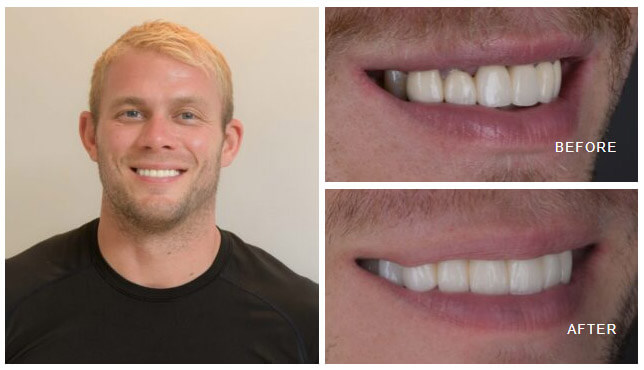
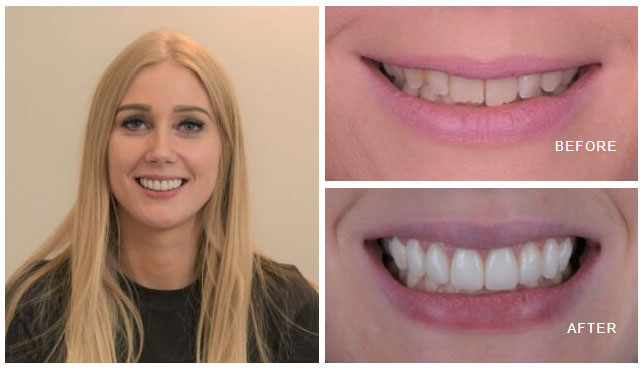
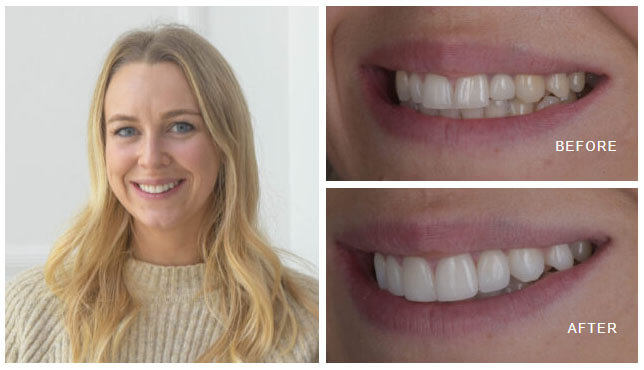
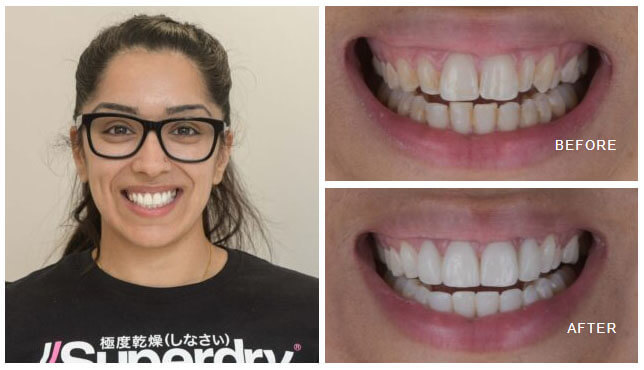
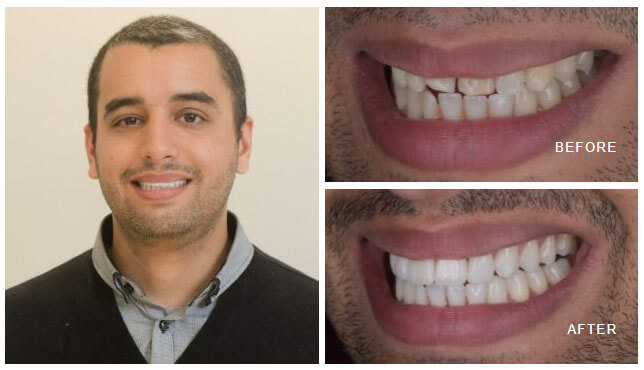
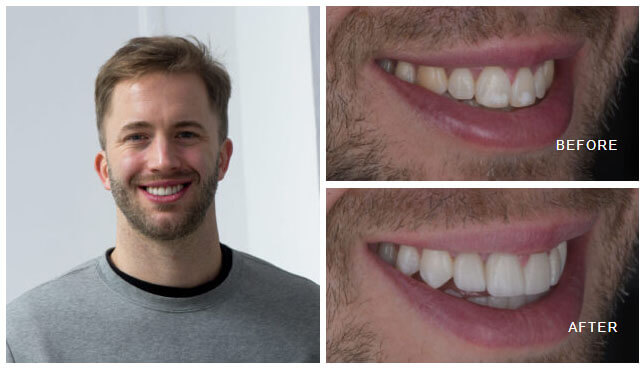
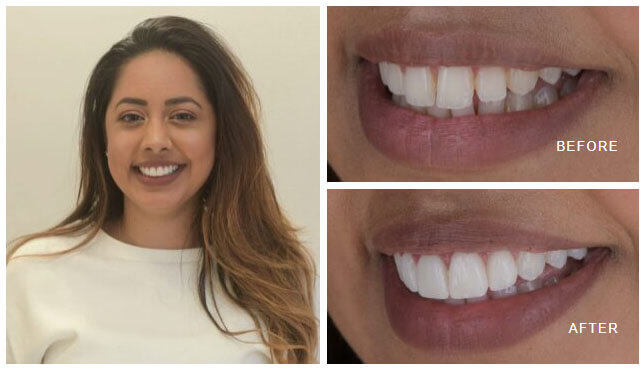
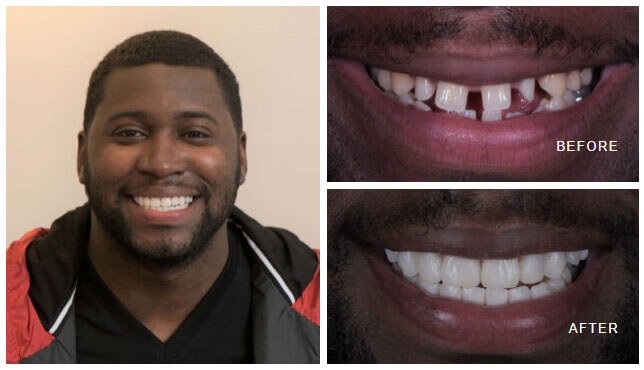
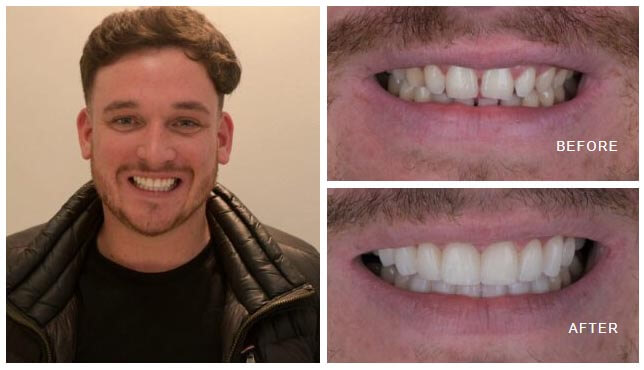
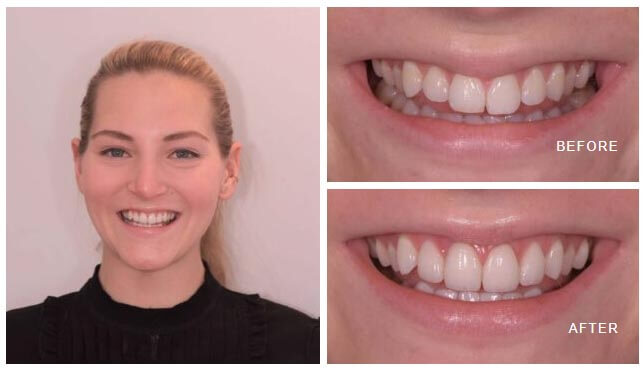
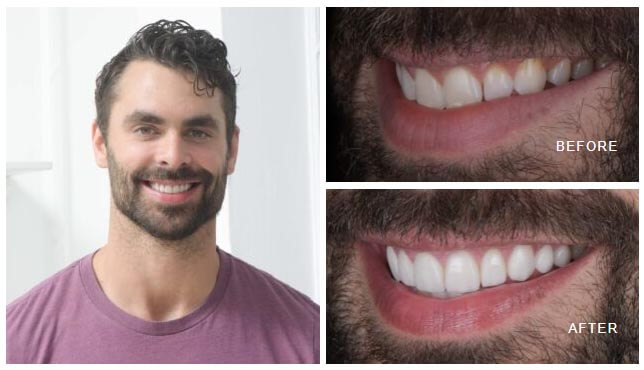
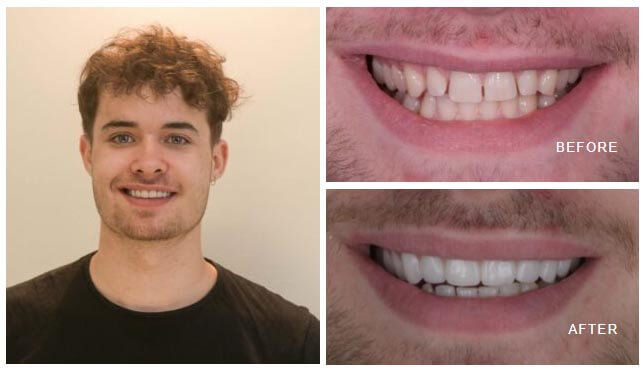
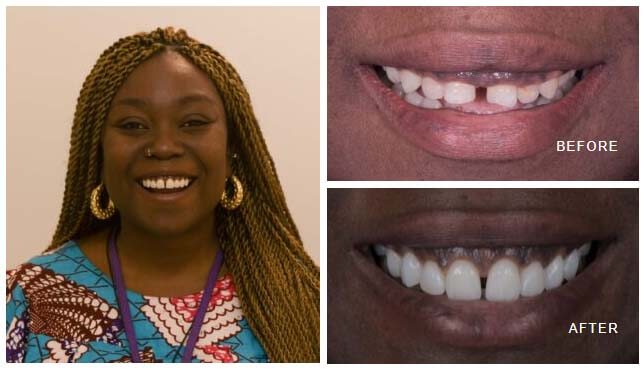
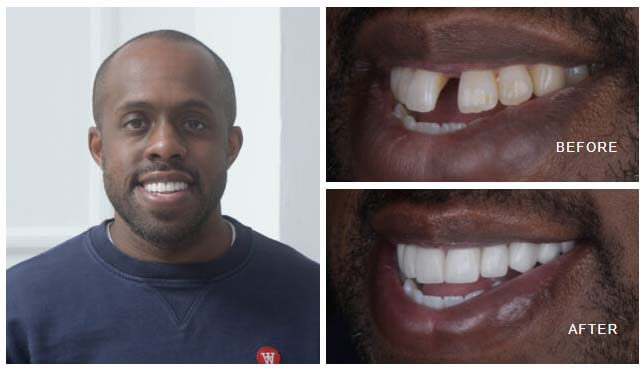
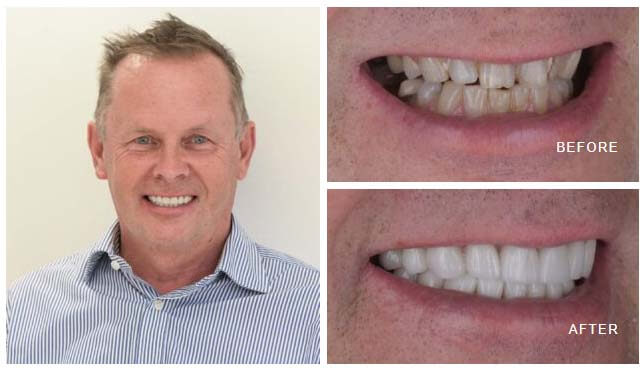
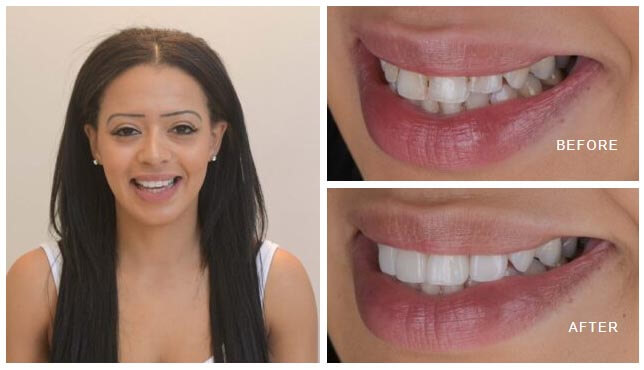
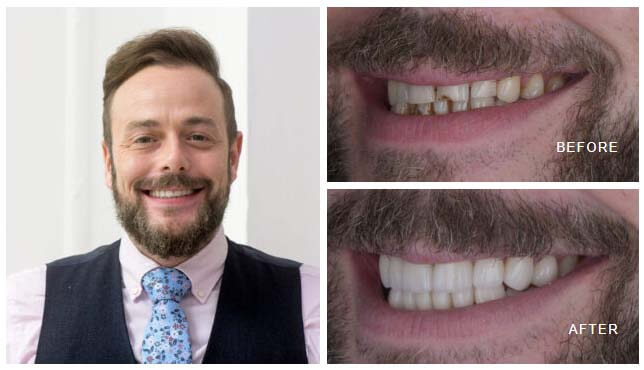
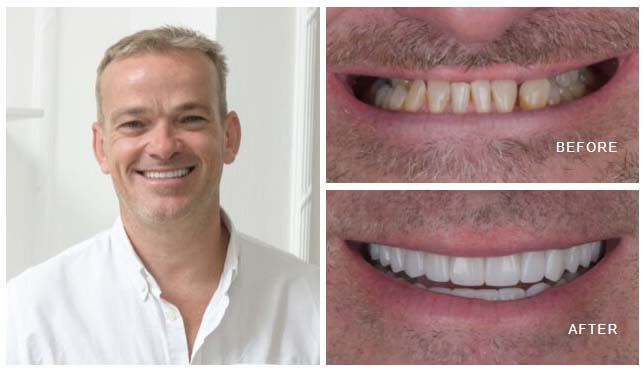
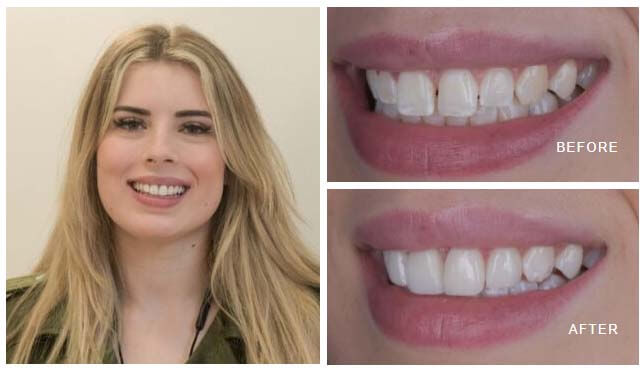
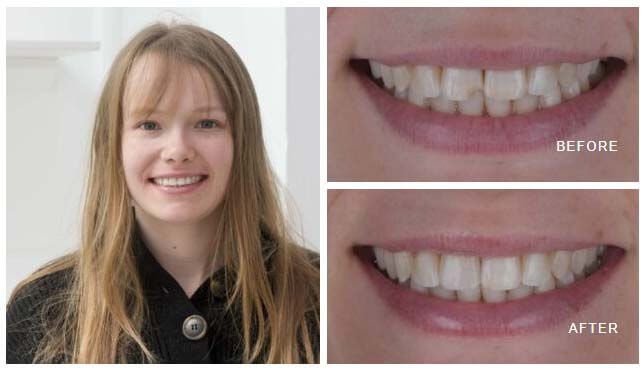
To see all our veneers work browse our smile gallery page.
Veneers London
What are veneers?
Dental veneers are thin layers of ceramic or porcelain that cover the teeth and are often used to improve the appearance and the aesthetic feel of the whole mouth.
Porcelain veneers in London
Porcelain veneers can not only provide an aesthetic improvement to teeth, but can also help prevent dental issues like damage or discolouration in the future by forming a protective barrier on the natural teeth beneath them.
While the most common materials that we use for veneering your teeth are ceramic and composite resin, most of us know of veneers to be ‘porcelain’.
Porcelain is a type of ceramic material. For it to be porcelain, there needs to be the presence of the inorganic material, kaolinite. In modern dentistry, kaolinite is mostly absent from veneer materials. Therefore, we prefer to refer to our veneerings as ceramic, as ceramic refers to any substance produced through the application of heat and includes metal, synthetic, and materials previously known as porcelain.
What are veneers used for?
At our dental clinic in London we use veneers to improve the aesthetics of our patient’s teeth or an individual tooth. Issues that can be improved include:
- Gaps between teeth
- Chips and other damage related to trauma
- Discolouration or stains
- Narrow Smiles
- Underbites
- Overbites
- Tetracyline staining
- Worn Teeth
- Crowded Teeth
- Dark Teeth
- Peg Laterals
- Missing Teeth
However, there are other factors that can be improved by having these tiny overlays fitted to your teeth. For example, if your teeth are facing an irregular direction, your bite force, over time, can lead to your teeth moving even further out of position. A porcelain veneer can correct the distribution of bite forces, preventing problems from arising over time relating to tooth drift and surface damages.
Why Should You Choose Marylebone Smile Clinic For Veneers?
Our Harley Street dentists are experts in gum lifts, veneering, tooth contouring, composite bonding, and a range of other treatments that can give you your smile back.
With an amazing positive success rate, our experienced dentist has worked with professional athletes and celebrities like James Smith, Danny Mac, Frankie Gaff, and more. Marylebone Smile Clinic are also trusted to create the smiles of those who value their complete privacy, such as CEOs, Members of Parliament, and the British Special Forces.
How are veneers installed?
The process for installing veneers will take around 4 weeks and will be spread over three appointments. However, this does have the potential of taking longer depending on your personal dental health at the offset, or if you have any damaged teeth that will need addressing first.
Our typical process consists of:
- Virtual Consultation
- In person consultation
- Planning
- Preparation
- Insertion/Fit
- Recovery and maintenance
You may start by sending us a photo of your teeth, then we will assess it for how many teeth will be worked on followed by the associated costs to expect. You will be able to ask questions to our experienced team of treatment coordinators before booking a virtual video consultation with a dentist. You can discuss the treatment in more detail here and decide if it’s right for you. If so, an in-person consultation will then be booked.
A consultation is our formal starting point for beginning your treatment. We start by conducting a full dental health screen that will provide us with information on your current gum and tooth health, as well as check your mouth for signs of cancer.
Another valuable piece of information the consultation will provide is an assessment of your bite. You will have to move your mouth as if you are chewing normally and we will record how your mouth moves. We may need to use a ‘bite fork’ to create a copy of your bite plane and jaw movements. This will enable us to experiment with changes to your teeth and see how this will affect your bite.
We will begin to plan your specific veneer teeth after taking x-rays of your mouth and constructing a 3D image for you to see how your new teeth will look. You will be able to discuss with your dentist if there are any questions you have and if you want to make any changes before moving forward.
Before applying them, we will whiten your teeth so that your natural teeth match the brightness of your new teeth.
You will need to come in for an appointment where we will reshape your teeth and fit temporary veneers to give you a feel of what your future teeth will look like. These temporary laminates will last for two weeks, and during this time you can get back in touch with your dentist if there are any changes that you want to make to your official veneers before they are fitted. We will not move forward with creating your veneers until we are sure that you are fully satisfied with the finished product.
After making any changes, if you require them, to your permanent teeth from your temporary ones, they are then hand-pressed in ceramic.
There are many stages of approval during this process. First, a veneer is assessed against your bite information to ensure that they will fit your mouth as planned. Then, your dentist will quality check them. Before they are finally applied, you will have the chance to inspect them and offer your approval if there are no further changes that need to be made.
As the last step before they are fitted to your teeth, they are disinfected and etched with chemicals that allow the laminate to bond with the bonding agent and the tooth itself. We use a high-quality bonding agent that has been used by the highest standard of dentists for over 30 years.
You will usually feel normal after a few days, and full healing will be complete in around 3-4 weeks. Routine dental health checks are advisable to ensure that cleaning is at an optimum and the rest of your teeth are being maintained. Ceramic veneers may be maintained as you would for natural teeth, with interdental cleaning being a favourable habit to adopt, by either using floss, interdental brushes or irrigators. Our 7-year guarantee is issued after your review appointment and is kept in date by attending a hygienist twice yearly and attending our clinic once yearly.
Our Veneers Cost
| Treatment Type | Price |
|---|---|
| Porcelain/Ceramic Veneers | from £995 |
| Porcelain/Ceramic Bridges | from £995 |
| Porcelain/Ceramic Crowns | from £995 |
Turkey Teeth or Dental Tourism
Dental tourism is a growing industry, and many overseas providers are promoting dental treatment at large discounts.
Having seen several cases return from Turkey, we would urge you to exercise caution when considering dentistry abroad.
Are Turkey teeth real veneers?
Turkey Teeth is a popular method to have full smile makeovers. We have noticed a tendency for crowns to be used instead of dental veneers, which pose a greater risk to the nerve of the teeth, and shortens their lifespan. That’s why veneerless dental work is never a good thing. In general veneered teeth are considered the gold standard in aesthetic dentistry. We also routinely see several root canal treatments that have taken place at the time of treatment or shortly after.
These tiny shells should not create the need for removal of the nerve as this is a rare complication that occurs less than 2% of the time. A lack of expertise or skill and due care during the procedure itself can cause inadvertent damage to the nerve. This is unfortunately permanent and irreversible, which is why our clinic always encourages preservation of the nerves of teeth.
The regulatory and clinical standards in many countries is far lower than with the UK, Turkey being especially easy to become a clinician. In the UK, aside from being heavily regulated, clinicians undergo extensive training to practice at the most basic level, before considering further training in cosmetic dentistry.
Is it safe to get your teeth done in Turkey?
In addition, you are protected in the UK from neglect by the General Dental Council as well as locally from clinics such as ours who offer a guarantee on ceramic work. This protection does not exist if the treatment was sought outside the UK. This may pose a problem if there were any concerns with the treatment provided. As you will likely be a resident of the UK long-term, our advice for any medical or dental procedure is to have it performed in the country you live in. This will allow you maintain the results without complication.
Finally, whilst there are excellent dentists worldwide, the UK has always held internationally recognised teaching and research institutions, which provide dental training at some of the highest standards in existence.
Our advice
Dentistry is not a commodity that should be chosen based on price alone. As a highly personal service, cosmetic dentistry should be chosen based on results, safety and stability. After all it is your face, mouth and smile that is one of the most important parts of the body.
Our Services
FAQ’s
UK veneers cost from £595 to £4000 per tooth. Our clinic is a dedicated cosmetic clinic and due to us routinely managing ceramic dental work, we typically charge just £995 per tooth.
Within dentistry, these are defined as a thin layer (often only 0.1mm thick) of porcelain/ceramic or composite resin fitted to the outside surface of one or more teeth to their appearance.
Veneers are a safer, less invasive alternative to crowns for cosmetic improvements, enhancing a tooth’s shape, color, and appearance with minimal reshaping. Crowns are better for damaged teeth but unnecessary for purely aesthetic purposes.
Some of the best and most effective materials with quality reputations worldwide are Ivoclar Vivadent’s IPS E.max Press and Empress, as well as Dentsply Sirona’s Celtra Press, and GC Lisi. We use a combination of these alongside a few other reinforced ceramics that are either lithium disilicate or silicon dioxide based that ensure a high strength to thickness ratio. This means that we are prepared with veneers suitable for a broad spectrum of cases.
If you’re considering porcelain veneers, review a dentist’s portfolio and customer reviews to ensure quality. Cosmetic veneers are not covered by public healthcare, so you’ll need a private, experienced dentist. Contact us for examples of our work, credentials, and feedback from high-profile clients, including celebrities, MPs, and CEOs
Many celebrities around the world have turned to these dental shells to improve the aesthetic of their smile. For example:
Cheryl Cole – possibly one of the best results from a combined approach
Tom Cruise – A combination of crowns and veneers, he is on his 3rd set now!
Anna Kendrick – she had six veneers before her rise in Hollywood
Morgan Freeman – a long history of gum disease and we’re glad he finally had it treated and then had veneers
There have been updates to the composition over the years. While they used to be referred to as porcelain, the vast majority of them do not contain porcelain.
Another term for veneers that is used by dentists is ceramic. We prefer this term for the purposes of clarity. Ceramic refers to any inorganic material produced through the application of heat. This encompasses all previously known porcelains, metal-based ceramics, and the more modern synthetic materials.
You will receive local anaesthesia during your appointments that lasts for approximately 3 so you won’t feel any pain while these are being applied.
As with most things in life, veneers do not last forever, around 10-20 years according to the latest in peer-reviewed dental research. When they begin to approach the end of their lifespan, you will need to come back in and get them replaced.
Your natural teeth may need to be reshaped again to allow the new ones to fit onto them. We usually aim to preserve around 70-95% of each tooth, which incurs an approximate 2% risk to the nerve within the tooth becoming aggravated as a result of the procedure.
Related Posts
-

Veneers for Tetracycline Stained Teeth
-

Non-Invasive Veneers
-

Clip in Veneers vs Ceramic Veneers
-

Single Tooth Veneers Cost in London
-

Veneers for Small Teeth
-

Veneers for Chipped Teeth
-

Bottom Teeth Veneers
-

Different Types of Veneers Explained
-

Veneers for Worn Teeth
-

Fluorosis and White Spot Smile Makeover
-

Veneers for Overbites
-

Veneers for Peg Laterals




